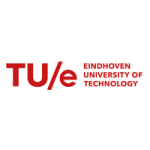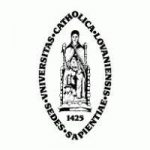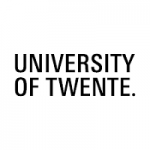项目介绍
Job description
We are looking for a talented PhD candidate to join our research team focused on advanced atomization processes for producing high-quality metal powders. This project will combine physical experiments and Computational Fluid Dynamics (CFD) modeling to deepen our understanding of the atomization process—a crucial step in powder metallurgy (PM) and additive manufacturing (AM).
Project description
The production of metal powders for PM and AM requires high sphericity, uniform particle distribution, and optimal size characteristics. Molten metal atomization is the key process that transforms molten material into fine, spherical particles using high-velocity gas streams. This project aims to develop an experimentally validated CFD model for this process, advancing the understanding of the physical and chemical mechanisms involved in close-coupled gas atomization (CCGA).The overall objective of this study is the development of the experimentally validated CFD model for molten metal atomization. To pursue the overall objective, in this project we aim to:
- Goal 1 Develop a gas atomization CFD model
At TU/e, a numerical framework describing the molten metal droplet behavior during gas atomization is under development. This model is crucial as it provides a theoretical basis for understanding and predicting the behavior of molten metal during atomization. The model must include: (i) primary breakup, (ii) secondary breakup, (iii) coupling between primary and secondary breakups.
- Goal 2 Perform digital inline holography (DIH) experiments
To validate and refine our CFD model, we need experimental data of spray and droplet characteristics. At Technion, digital inline holography experiments on close-coupled gas atomization (CCGA) have been performed using water and air. The setup and experimental technique will be used to carry out atomization experiments of glycerol/water mixtures (change in viscosity) and solutions with surfactants (change in surface tension). These liquids with different physical properties are used to mimic the typical properties of molten metal. The experiments will provide critical data on velocity and droplet size distributions, as well as the number of droplets per unit volume and their spatial distribution in the spray.
- Goal 3 Validate the gas atomization model with experimental results
Validation is essential to ensure the CFD model’s accuracy and reliability. The gas atomization CFD model developed at TU/e will be validated using the experimental results obtained from DIH at Technion. This validation will confirm the model’s ability to accurately simulate the atomization process.
Key Responsibilities:
- Develop a CFD model for gas atomization: Work on a numerical framework that simulates molten metal breakup during atomization, covering primary and secondary breakup processes.
- Conduct digital inline holography (DIH) experiments: Design and perform experiments using surrogate liquids to capture critical data on spray dynamics, droplet sizes, and velocities.
- Validate the CFD model: Use experimental results to validate and refine the CFD model, ensuring its accuracy in predicting the atomization process.
- Collaborate with Technion- Israel Institute of Technology: Participate in cross-institutional research, utilizing both experimental and computational techniques to enhance the project’s outcomes.
Why Join Us?
This PhD position offers a unique opportunity to work on cutting-edge research that impacts industries such as additive manufacturing, steelmaking, and energy storage. You will gain access to state-of-the-art experimental and computational facilities and contribute to sustainable, innovative manufacturing technologies.
If you are an enthusiastic researcher with a passion for fluid dynamics and atomization processes, we encourage you to apply.
Project team
You will work with a dynamic team of experts, including Dr. Giulia Finotello and Prof. Niels Deen at TU/e, and Prof. René van Hout at Technion. The research interests of Giulia Finotello include development of advanced experimental techniques and numerical tools to investigate spraying dynamics. Prof. René van Hout is an expert in multiphase flow and particle behavior in turbulent flows. He specializes in advanced experimental techniques such as Particle Image Velocimetry and digital holography. This collaboration will enable the development of a robust, experimentally validated multiphase and multi-scale CFD model for molten metal atomization.
As part of the EuroTech PhD program you will collaborate with Technion – Israel Institute of Technology in the group of prof. van Hout. Due to the situation in the region, a stay in Technion is not compulsory, and the possibility to perform it (6 to 12 months) will be evaluated in the future. This project is also supported by the Eindhoven Institute for Renewable Energy Systems EIRES, and you will become an active member of the EIRES community!
Job requirements
Talented, enthusiastic candidates with excellent analytical and communication skills holding a master’s degree in mechanical engineering, Chemical Engineering or related fields are encouraged to apply. The following skillsets are required:
- Strong background in fluid dynamics, heat transfer, and computational modeling (CFD) with a proven particle/flow simulation experience in multiphase flows
- Experience with Open Foam is beneficial
- Experience with experimental techniques such as digital holography and/or PIV is beneficial
- Experience to work in a multi-disciplinary team of researchers
- Fluent in spoken and written English.
Conditions of employment
A meaningful job in a dynamic and ambitious university, in an interdisciplinary setting and within an international network. You will work on a beautiful, green campus within walking distance of the central train station. In addition, we offer you:
- Full-time employment for four years, with an intermediate evaluation (go/no-go) after nine months. You will spend 10% of your employment on teaching tasks.
- Salary and benefits (such as a pension scheme, paid pregnancy and maternity leave, partially paid parental leave) in accordance with the Collective Labour Agreement for Dutch Universities, scale P (min. €2,872 max. €3,670).
- A year-end bonus of 8.3% and annual vacation pay of 8%.
- High-quality training programs and other support to grow into a self-aware, autonomous scientific researcher. At TU/e we challenge you to take charge of your own learning process.
- An excellent technical infrastructure, on-campus children’s day care and sports facilities.
- An allowance for commuting, working from home and internet costs.
- A Staff Immigration Team and a tax compensation scheme (the 30% facility) for international candidates.
Information and application
More information
Do you recognize yourself in this profile and would you like to know more? Please contact
Giulia Finotello, Assistant Professor, G.Finotello@tue.nl.
Visit our website for more information about the application process or the conditions of employment. You can also contact HR advice, HRadviceME@tue.nl or +31 40 2475902.
Please visit www.tue.nl/jobs to find out more about working at TU/e!
Application
We invite you to submit a complete application by using the ‘apply now’-button on this page.
The application should include a:
- Cover letter in which you describe your motivation and qualifications for the position.
- Curriculum vitae, including a list of your publications and the contact information of three references.
- Brief description of your MSc thesis.
We look forward to your application and will screen it as soon as we have received it. Screening will continue until the position has been filled.
联系方式
电话: +31 (0)40 247 9111相关项目推荐
KD博士实时收录全球顶尖院校的博士项目,总有一个项目等着你!






